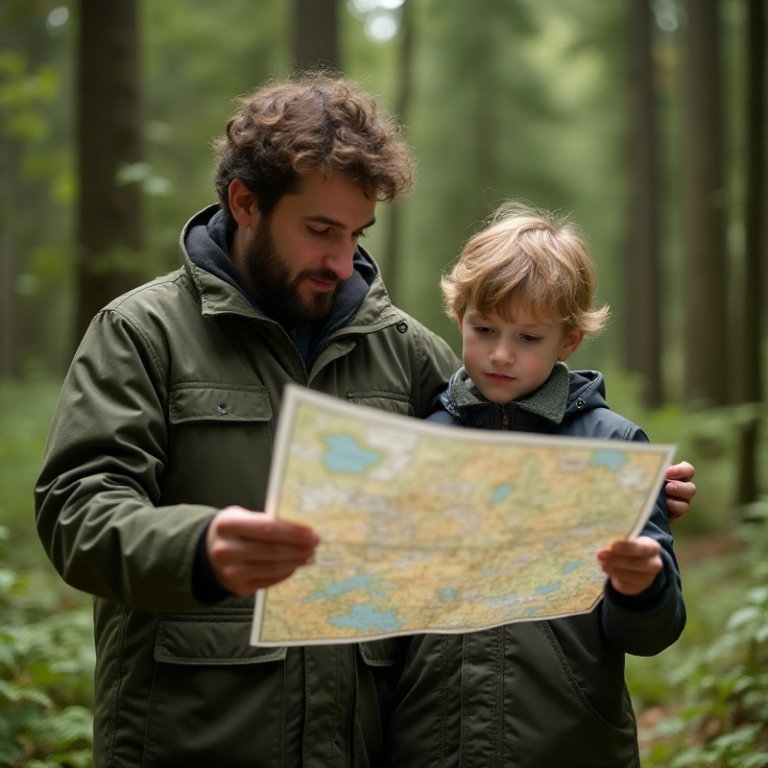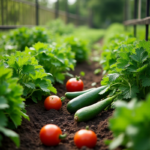Teaching your kids about prepping is one of the most rewarding things you can do as a parent. Not only does it prepare them for emergencies, but it also helps them develop critical thinking, resilience, and confidence. If you’re wondering where to start, don’t worry! This guide will walk you through practical and fun ways to introduce your kids to the world of prepping.
Why Teach Kids to Prep?
In today’s unpredictable world, being prepared isn’t just for adults. Kids who learn basic survival skills gain a sense of security and responsibility. Prepping also teaches valuable life lessons, like teamwork, problem-solving, and the importance of planning ahead.
For example, think about situations like a power outage, getting lost while hiking, or even natural disasters. Wouldn’t it be amazing if your kids knew how to stay calm and handle these challenges? By involving them in prepping, you’re setting them up for success in both everyday life and unexpected emergencies.
Start with the Basics
Prepping doesn’t have to be overwhelming. Start with small, manageable steps that match your child’s age and abilities. Here are a few easy activities to get started:
- Emergency Contacts: Teach them to memorize important phone numbers and addresses. Make a fun song or rhyme to help them remember.
- First Aid Skills: Show them how to apply a bandage or clean a small cut. Kids love hands-on learning!
- Packing a Go-Bag: Let them help pack their own emergency bag. Include a flashlight, snacks, and a favorite toy for comfort.
- Family Fire Drills: Turn fire safety into a game by practicing escape routes and meeting points.
By starting with these basics, you’re laying a solid foundation for more advanced skills later.
Make Prepping Fun
Kids learn best when they’re having fun. Instead of framing prepping as something scary, turn it into an adventure.
- Camping Trips: Take them camping to practice setting up tents, building fires, and cooking outdoors. It’s prepping disguised as a family outing!
- Scavenger Hunts: Create a scavenger hunt to teach them how to locate survival items or identify edible plants.
- DIY Projects: Build simple tools like a solar oven or a rainwater collector together. Kids love creating things they can actually use.
- Storytime: Read age-appropriate books or tell stories about survival scenarios where kids save the day.
When prepping feels like play, kids stay engaged and excited to learn more.
Teach Problem-Solving and Critical Thinking
Prepping isn’t just about skills; it’s about mindset. Encourage your kids to think critically and solve problems on their own.
- What-If Scenarios: Ask them questions like, “What would you do if the power went out?” or “How would you find shelter if you were lost?”
- Obstacle Courses: Set up mini challenges in your backyard, like building a shelter or navigating with a map and compass.
- Cooking Without Power: Teach them how to prepare simple meals using a camp stove or solar cooker.
These activities help kids learn to adapt and make decisions under pressure, which are key aspects of preparedness.
Involve Them in Family Prepping
Prepping shouldn’t feel like a solo task. Make it a family affair and show your kids how their contributions matter.
- Stockpiling Supplies: Let them help organize food and water storage. Use it as an opportunity to explain why certain items are important.
- Gardening: Teach them how to grow their own food. Gardening is not only practical but also a great way to bond as a family.
- Budgeting: Include them in budgeting for prepping supplies. It’s a great way to teach financial literacy while emphasizing the importance of planning.
When kids feel like they’re part of the team, they take prepping more seriously and enjoy it even more.
Keep It Age-Appropriate
It’s important to tailor your approach to your child’s age and maturity level. Younger kids may only need to learn basic safety, while older kids can handle more complex tasks like fire-starting or water purification.
Don’t overwhelm them with too much information at once. Focus on one skill at a time, and gradually build their knowledge and confidence.
Celebrate Their Progress
Every time your kids master a new prepping skill, celebrate their achievement. Whether it’s a high-five, a small reward, or just telling them how proud you are, positive reinforcement goes a long way.
Acknowledging their progress keeps them motivated and shows them that prepping is something to be proud of.
Prepping with your kids isn’t just about preparing for emergencies; it’s about creating lasting memories and teaching them life skills they’ll carry forever. By starting with simple activities, making it fun, and involving them in the process, you’ll raise confident, capable kids who are ready to face any challenge.
So grab your gear, spark their curiosity, and start this exciting journey together. Prepping isn’t just for adults—it’s a family affair!
Similar topics: How to Teach Your Kids to Prep



